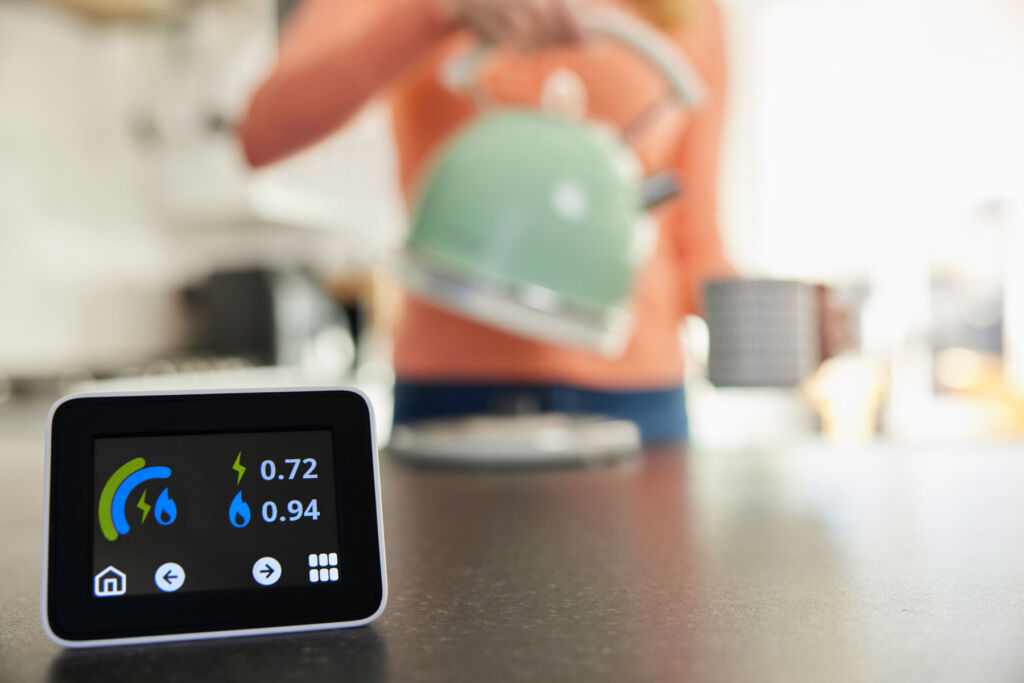

Every day in Britain, it is estimated that approximately 100 million ‘cuppas’ are consumed each day. However, boiling water in a kettle is not free, and the way you do it could be wasting hard-earned money. In this guide, we’ll explain why you need to become a Smart Boiler to help keep down those energy costs.
Regular readers will no doubt have seen our recent review of the KitchenAid Artisan kettle. What excited us about this kettle was its temperature control function which saves money by lowering the boiling temperature, thus reducing the run time and energy usage. However, this isn’t the only way to use a kettle in a more efficient way.
We’re now at that time of year when many will be focusing on keeping warm. Each day, more and more people will be turning to the kettle to make a hot drink, and no doubt many will be using the tried and tested method of filling it to the brim and leaving it to boil, even though most will only need to use a fraction of the water. That’s why the tea experts at the UK Tea and Infusions Association (UKTIA) are encouraging the nation to be ‘smart boilers’.
Named Smart Boil, the UKTIA is trying to encourage all tea lovers to boil the amount of water needed for a brew, which will help save on energy costs and be kind to the planet.
According to the latest energy calculations by sustainability experts[1] commissioned by the UKTIA, a whopping 2,649,792 kWh of electricity is wasted each day, creating 618 tCO2e greenhouse gas emissions just to boil the extra water. Overfilling the kettle also adds an eye-watering £900,900 a day overall to the nation’s energy bill.


Dr Sharon Hall, head of the UK Tea and Infusions Association, says, “The Smart Boil campaign returns for another year, and it’s not a moment too soon. With rapidly rising energy costs for consumers and businesses alike, every bit we can save on our electricity bills helps us deal better with the cost of living crisis.
“The UK is a tea-drinking nation, and everyone loves their tea breaks, so it really can make a difference to boil only what you need. Using your mug to measure out the water for one or two cuppas is easy to do, yet our survey found that only a third of people were doing this routinely.”
Out of 1,000 UK tea drinkers quizzed in the research poll for the UKTIA[2], fewer than 1 in 5 boiled the recommended amount of water when making a single mug of tea, with almost half boiling three or more times the water they need. In addition, in the same research study, 70% left it to cool down and boiled it again for the next cuppa, and a further one in 10 chucked the water down the sink.
Dr Sharon Hall explains further: “Following the Smart Boil guidelines to fill the kettle with only the water you need is good for the planet as well as your budget. The 2.6 million kWh of electricity saved daily would be enough to provide electricity to 112 average homes for a year or equivalent to 1.5 million miles of car journeys. That’s why Smart Boil is a win-win for everyone.”
Staying warm
As a nation, we all love tea for many different reasons. However, there is a new common habit that many of us are turning to when it is cold. Dr Sharon Hall explains: “Eight in 10 Brits told us they’re brewing a cuppa just to stay warm, revealing the true extent of the cost-of-living crisis. People aged 18-29 years were more likely to do this (85%) while 71% of those over sixty are also turning to a brew to keep warm.”
Last word
Dr Sharon Hall notes, “While two-thirds of adults admit to overfilling the kettle when making hot drinks, 85% agreed that boiling only the water you need can save on energy costs.
“Boiling just what you need is also good for the flavour of tea which develops best when made with freshly boiled water. The lack of oxygen bubbles in re-boiled water can give the tea a flat taste. Just over half (53%) of people in our survey were aware of this fact.”
Dr Sharon Hall adds: “So next time you make a brew, use your mug to measure out just the water you need for the number of cuppas you are making and ‘smart boil’.”
[1] UKTIA 2022; data on file; Calculated by GHG experts from Carbon Intelligence, a sustainability data and consulting company
[2] Independent poll of 1000 UK-employed tea drinkers conducted by Perspectus Global; Autumn 2022
Read more lifestyle news and guides here.
